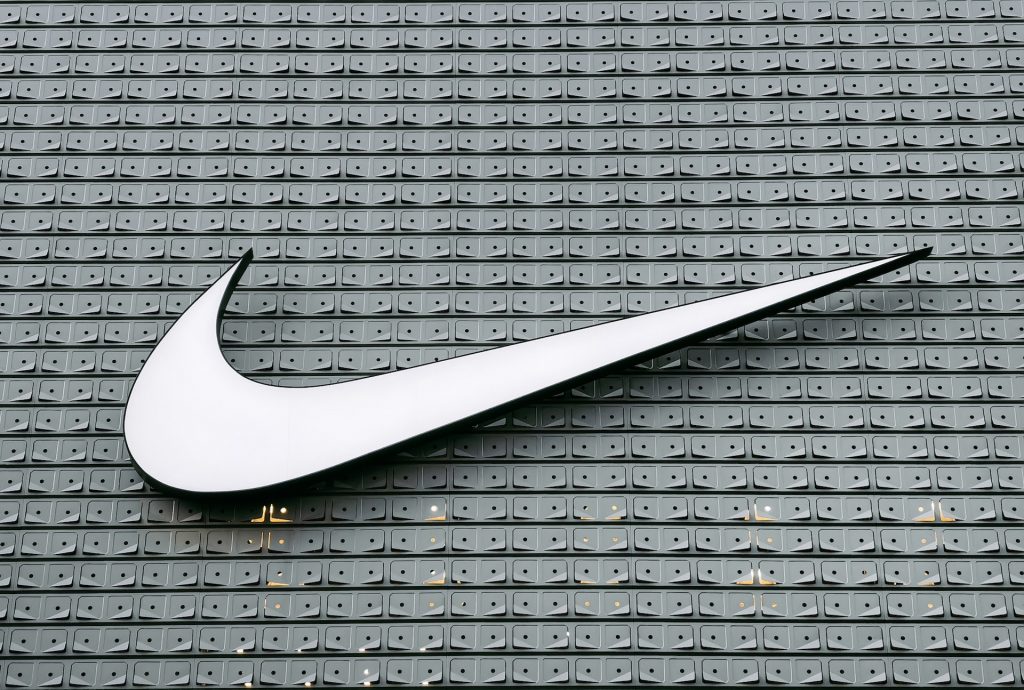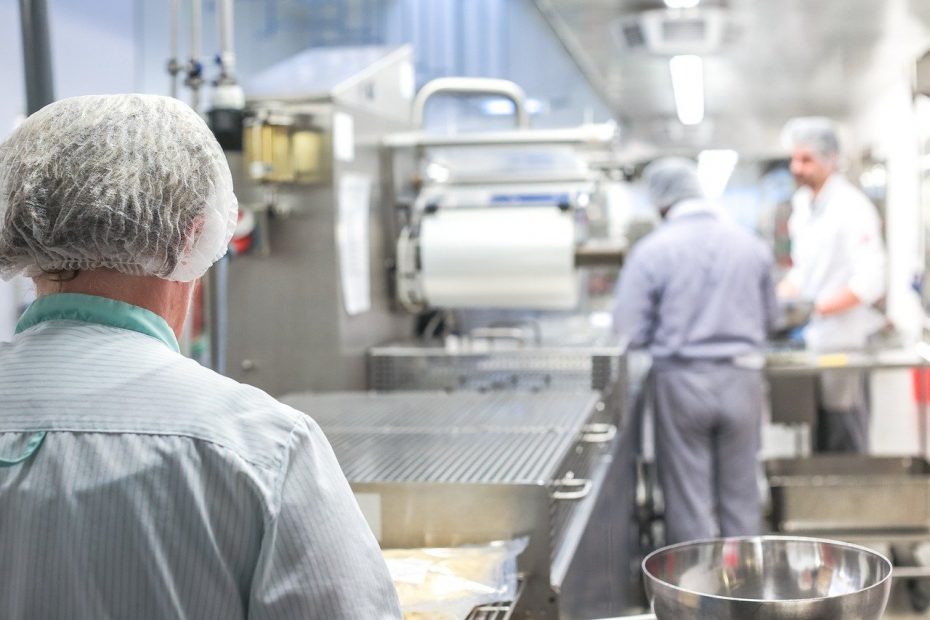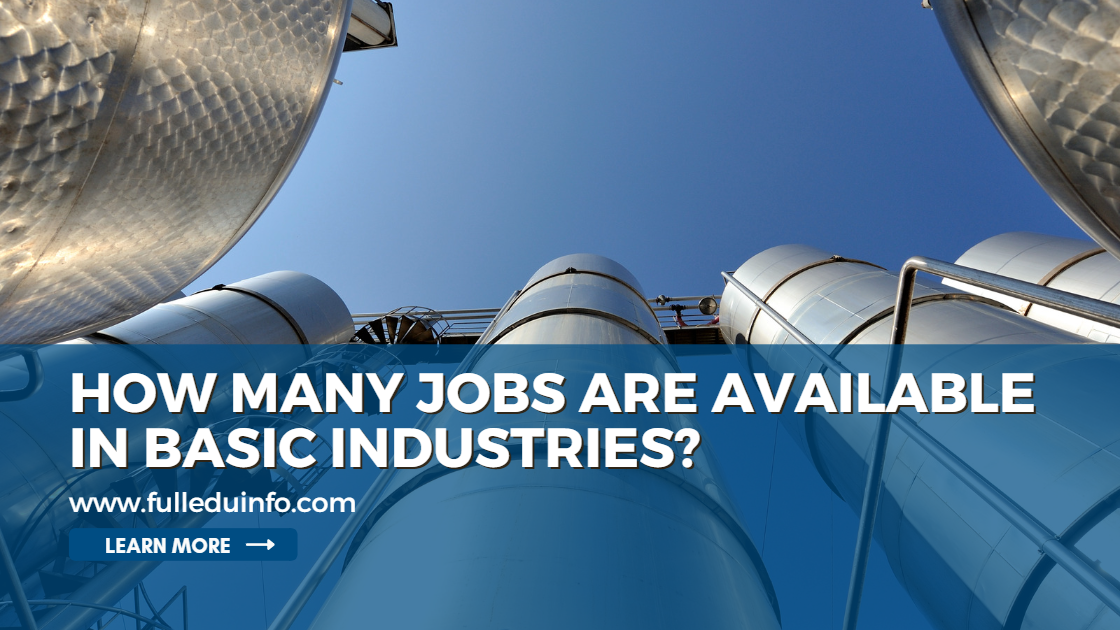Consumer Goods
Consumer goods are products that are meant for broad consumption. Consumptive goods are manufactured products that are finished and offered for sale. Consumers use them to satisfy their immediate needs or desires. These finished items can be consumed directly, such as tissue paper in the bathroom, a microwave in your kitchen, , candles, matches, and so on. They are not intermediary goods that are used to make other goods (such as pieces purchased to manufacture or assemble an item).
Types of Consumer Goods
There are two main types of consumables; The two are as follows:
Durable consumer products
Non-durable consumer goods
Consumer Durables
Appliances and durable items for home usage including televisions, refrigerators, air conditioners, and washing machines are included in the consumer durables sector. This category also includes kitchen items like microwave ovens as well as tools like cellphones. A number of factors, including the upcoming retail boom, housing and real estate demand, higher disposable income, and an overall rise in the degree of wealth of a sizeable portion of the population, have contributed to the sector’s tremendous expansion in recent years. Major worldwide and local players in the sector, like BPL, Videocon, Voltas, Blue Star, MIRC Electronics, Titan, Whirlpool, etc., are all represented. Consumer Electronics and Consumer Appliances are the two primary categories into which the consumer durables sector can be divided. Brown Goods and White Goods are additional categories that can be applied to consumer appliances.
Because they can be used again, durable products’ demand typically rises during economic expansion, which immediately causes an increase in the number of purchases. However, during a recession, both the demand for durable goods and the volume of purchases tend to decline. Consequently, they are regarded as a reliable economic indicator. The desire for non-durable items, however, does not change despite economic ups and downs. In both times of economic development and recession, consumers typically buy the same quantity of non-durable products as durable goods.
Also, because durable items are long-lasting and capable of withstanding repeated use without losing their functionality, their uses are not restricted to single uses. Before they begin to lose their usefulness, durable goods can typically be used repeatedly for longer than three years. On the other hand, non-durable goods are not intended for repeated usage. In actuality, they have a single use and lose their functionality after that. After the initial use, they usually become ineffective.
Durable goods include items like automobiles, furniture, home appliances, consumer electronics, tools, sporting materials, jewellery, semiconductors etc. These are robust items that don’t deteriorate easily and rapidly. Sweets, packaged foods, cosmetics, alcoholic beverages, office supplies, cigarettes, clothing, shoes, light bulbs, detergent, and other items are examples of non-durable commodities. Because they wear out quickly compared to durable goods, these are only intended for one usage.
Consumer Non-Durables
Non-durable goods are any consumer goods in an economy that must be purchased repeatedly because they are either used up quickly, usually within three years or consumed in one use. Soft goods or consumable products are other names for nondurable commodities. Non-durable items include, for example:
- Food
- Cleaning agents
- Light bulbs, dish soap
- Paper items such as paper plates
- Clothes
Unlike durable goods, which are not consumed or have a long lifespan, non-durable goods are exhausted in no time. They are used up quickly (considered to be over three years). These goods are designed to be used repeatedly by consumers. Since they are durable, their primary function is to be reusable for an extended period of time. They can be used to create automobiles, kitchenware, gym equipment, home appliances, electronic furnishings, and transportation.
Consumer durables is a broad and varied industry that includes businesses that make electronics, cars, and home appliances, among many other products. In 2017, there were more than 100 businesses involved in the consumer durables sector. Selling products that are primarily utilized for personal, private usage is known as consumer durables. Companies in this industry offer a range of items to meet the various demands and preferences of customers. Consumer durables is a sector of the economy where businesses produce goods for domestic use. Consumer durables contribute 25% of the GDP and more than $2 trillion in annual sales to the US economy.
What Are Consumer Non-durable Goods?
Items and things that can’t last for a long time are considered non-durable. They may only be used once before being replaced. Foods, medicines, and paper are a few examples of consumer goods that aren’t long-lasting. These products fall under the category of non-durable goods and need to be replaced frequently.
What Functions Do Non-durable Goods Serve in The Economy?
Non-durable items have a significant role in economics:
They are substantial share of Gross Domestic Product The categories of personal consumption, exports, and government purchases all account for a sizeable amount of a nation’s gross domestic product. Nondurable commodities are a stable part of an economy since they represent necessities that customers must buy regardless of the state of the economy (like groceries). This indicates that, in contrast to durable commodities, nondurable goods are less impacted by the business cycle, or the cycle of economic expansion and decline.
They are also unrecognised as a leading economic indicator. Small gains or declines in the purchase of nondurable products are not regarded as economic indicators since they are a steady component of the economy; rather, they are more indicative of demographic changes than of economic expansion or contraction.
What Companies Are In The Consumer Nondurables Field?
Since non-durable goods are any consumer items in an economy that need to be bought frequently because they are either eaten in a single usage or used up rapidly, typically within three years, companies that produce items like the following are in the non-durable field.
Paying Jobs in Consumer Nondurables
- Pharmaceutical Manufacturing
- Beauty and cosmetic industry
- Food Manufacturing
- Companies that produce farm tools and agricultural equipment
- Shoes and wears
- Paper Manufacturing
- Petroleum and the oil and gas industry
There are numerous organisations both domestically and abroad that provide consumer non-durables. We will examine in detail the leading non-durable consumer goods companies worldwide.
Procter & Gamble Company
With Baby Care and Fabric Care, Family Care and Feminine Care, one of the most reputable FMCG firms in the world and one of the largest makers of non-durable items. The headquarters are in the USA.
The Procter & Gamble Company is a leading producer of non-durable consumer goods and a global leader in fast-moving consumer goods (FMCG). It offers products for baby care, fabric care, family care, feminine care, hair care, home care, grooming, personal health care, oral care, skin care, and personal care. The USA is where the headquarters are.
Coca-Cola
The Coca-Cola Company is a multinational corporation best known for creating Coca-Cola. The sweet beverage was created by pharmacist John Stith Pemberton in 1886. The Coca-Cola Company also produces, sells, and markets alcoholic beverages as well as other non-alcoholic beverage concentrates and syrups. The stock of the corporation is traded on the NYSE and is represented in the DJIA, S&P 500, and S&P 100 indexes.
When it was first created, the product contained caffeine from kola nuts and cocaine from coca leaves, which together had stimulating properties. Coca-Cola was advertised as a “healthy tonic” thanks to the coca and kola that gave rise to the brand name. Asa Griggs Candler purchased the recipe and brand in 1889 for $2,300 (approximately $71,000 in 2022), and in 1892 he established the Coca-Cola Company in Atlanta. Since 1889, the business has run a franchised distribution network. The company primarily makes syrup concentrate, which is then distributed to numerous bottlers with unique markets throughout the world. Coca-Cola Refreshments, the company’s cornerstone bottler in North America, is owned by it.
PepsiCo
One of the most reputable food and non-alcoholic beverage companies in the world is PepsiCo. As of 2019, they employed more than 263,000 people. The USA is where the corporate headquarters are. PepsiCo, Inc. is a worldwide food, snack, and beverage company with its main office in Purchase, a hamlet in Harrison, New York. It is in charge of its products’ production, marketing, and distribution. The Pepsi-Cola Company and Frito-Lay, Inc. merged to establish PepsiCo in 1965. Since then, PepsiCo has grown to include an incredibly diverse range of food and beverage brands in addition to its eponymous product, Pepsi Cola. The greatest and most recent acquisition, Pioneer Foods, was made in 2020 for US$1.7 billion. Prior to that, Tropicana Products and the Quaker Oats Company were purchased in 1998 and 2001, respectively.
The corporation has 23 brands with annual sales of exceeding US$1 billion as of January 2021. With operations all over the world and product distribution in more than 200 nations, PepsiCo generates yearly net revenues of more than US$70 billion. Based on net revenue, profit, and market capitalisation, PepsiCo is the second-largest food and beverage company in the world, behind Nestlé. The cola wars are the name given to the long-running conflict between PepsiCo’s flagship product, Pepsi Cola, and Coca-Cola. Even though Pepsi Cola outsells Coca-Cola in the United States, PepsiCo leads the food and beverage industry in North America in terms of net revenue. Since 2018, Ramon Laguarta has led PepsiCo as its CEO. PepsiCo and authorised bottlers in some areas handle the company’s beverage distribution and bottling.
Nike
Nike is an American multinational firm that designs, develops, manufactures, markets, and sells footwear, clothing, equipment, accessories, and services on a global scale. The business has its headquarters in the Portland metro area, close to Beaverton, Oregon. With sales exceeding US$37.4 billion in its fiscal year 2020, it is both the largest manufacturer of sports equipment as well as a global supplier of athletic shoes and apparel. On the 2018 Fortune 500 list of the biggest American companies by total sales, Nike came in at number 89. In the industry of making sportswear, Nike is the most reputable brand. Nike will have more than 73,300 employees by the year 2021.

Unilever
Another significant consumer non-durable company is Unilever. It offers quick-moving, disposable consumer goods for sale. Every day, 2.5 billion people use Unilever goods to look great, feel great, and enjoy life more. Unilever is a significant FMCG firm that operates globally and sells fast-moving, non-durable consumer goods. 2.5 billion people use Unilever products every day to look well, feel good, and enjoy life more.
It offers a huge selection of brands and goods. In order to create content for their numerous brands, Unilever is now embracing AI. They are utilising AI to produce content that will be more successful than anything they could have done on their own and will speak to consumers on an emotional level. Global consumer goods giant Unilever offers its items in more than 190 nations. The business has long utilised AI-based solutions for social media marketing and content creation.
Using AI techniques, Unilever is utilising this chance to better understand the demands of its customers. They can create better products and services that are more relevant to them by understanding their wants.
Mars, Inc.
Confectionery, food, pet feeds, and other flimsy goods are all sold by Mars, Inc., a consumer goods firm. Mars, Inc. is an illustration of a business that has achieved success in the consumer non-durable market by concentrating on a few key areas and offering high-quality goods at competitive rates. Frank C. Mars Sr. started Mars because he wanted to offer his customers high-quality candy at reasonable prices so that everyone could enjoy them. In 1911, he started the business with the money he had made from selling his bicycle and $15 worth of candy bars to friends and family.
Kellogg’s
Cereal and convenience foods are produced by the multinational food corporation Kellogg’s. The beginning of Kellogg’s may be traced back to 1906. Will Keith Kellogg and John Harvey Kellogg, brothers, created the business. Over the past few years, Kellogg’s has seen declining sales, and the corporation is currently looking for measures to strengthen their operations. They are attempting to achieve this, among other things, by employing AI writing assistance to produce material more effectively.
General Mills
One of the largest businesses in the food sector is General Mills. Additionally, it is a long-standing business that consistently innovates and creates new items. The lengthy history of invention at General Mills is seen in the variety of goods it produces, including ice cream, pet food, and breakfast cereals. William Davis Clark launched the business in 1901. The business began as a tiny mill producing flour for nearby bakeries.
With its headquarters in Vevey, Vaud, Switzerland, Nestle is a multinational conglomerate firm that processes food and beverages. According to revenue and other measures, it has been the largest publicly traded food company since 2014.
Some of the baby food, medical food, bottled water, breakfast cereals, coffee, tea, confections, dairy goods, ice cream, frozen foods, pet foods, and snacks are all manufactured by Nestlé. Twenty-nine Nestlé brands, including Nespresso, Nescafé, Kit Kat, Smarties, Nesquik, Stouffer’s, Vittel, and Maggi, generate yearly sales of over 1 billion CHF (about US$1.1 billion). Nestlé employs about 339,000 people, has 447 factories, and does business in 189 countries. The largest cosmetics firm in the world, L’Oreal, has it as one of its principal owners.
Tyson Foods
Tyson Foods produces processed foods. The segments it operates via include Chicken, Beef, Pork, and Prepared Foods. The domestic operations for rearing and converting live birds into fresh, frozen, chicken products, as well as sales of associated goods, are included in the Chicken segment.
The Beef segment encompasses activities connected to the processing of live-fed cattle and the fabrication of primal and sub-primal meat cuts and goods from dressed beef carcasses. The operations connected to processing live market hogs and turning pork carcasses into prime and sub-prime cuts and case-ready goods make up the Pork section. The Prepared Foods section manufactures, markets, and conducts logistical activities to transport goods through the supply chain for frozen and chilled food products. The organisation’s headquarters are in Springdale, Arkansas, and it was established by John W. Tyson in 1935.
Nestle AG
Another firm that manufactures non-durable food is Nestle AG. Switzerland is where it is headquartered. Nestle owns more than 2000 brands, including both internationally recognised names and locally favoured FMCG goods. In addition, Nestle is present in 191 nations globally. The headquarters are in Switzerland. Located in Vevey, Vaud, Switzerland, Nestle is a multinational food and beverage industry conglomerate firm. According to revenue and other measures, it has been the largest publicly traded food company since 2014. It was placed No. 64 on the 2017 Fortune Global 500 list and No. 33 on the Forbes Global 2000 list of the biggest public firms in 2016.
Some of the baby food, medical food, bottled water, breakfast cereals, coffee, tea, confections, dairy goods, ice cream, frozen foods, pet foods, and snacks are all manufactured by Nestlé. Twenty-nine Nestlé brands, including Nespresso, Nescafé, Kit Kat, Smarties, Nesquik, Stouffer’s, Vittel, and Maggi, generate annual sales of over 1 billion CHF (roughly US$1.1 billion). Nestlé employs about 339,000 people, has 447 factories, and does business in 189 countries. The largest cosmetics firm in the world, L’Oreal, has it as one of its principal owners.
Kraft Heinz
Kraft Heinz is an American food and non-alcoholic beverage company with its headquarters in Chicago, Illinois. More than 50 nations are home to its branded food products. Heinz and Kraft Foods Group merged to form the business in 2015. The third-largest food and beverage firm in North America and the fifth-largest in the globe, respectively, is Kraft Heinz.
For all eating occasions, whether at home or in restaurants, The Kraft Heinz Company offers high quality, outstanding taste, and nutrition.
Alcoa Corporation (AA)
Through its active and expanding involvement in all key aspects of the industry, including bauxite mining, alumina refining, aluminium smelting and casting, and aluminium recycling. In terms of the production and administration of alumina, manufactured aluminium, and primary aluminium, Alcoa Corporation is a world leader..
The majority of the company’s operations are in Australia, Belgium, Brazil, Canada, Chile, Germany, Ireland, Jamaica, Malaysia, New Zealand, Norway, Saudi Arabia (including interests held through joint ventures), South Africa (including interests held through joint ventures), Sweden (including interests held through joint ventures), Thailand (including interests held through joint ventures), UAE (including interests held through joint ventures), and United States.
Google Inc. (BIDU)
A wide range of online advertising and Internet-related services are offered in China by Baidu, Inc. (BIDU), a Chinese web services provider. Through its gateway website Baidu.com, its search engine provides text-based searches, Web and image searches, and more (www.baidu.com).
Additionally, the company offers data on local business listings and maps, a mapping tool that enables users to create points of interest like reviews of restaurants or retail stores, an email service called Baidu Post Bar, the Baidu Video network with the ability to upload video clips, and other related products.
Conclusion
The consumer non-durables sector is particularly profitable because there are so many different products coming to the market that there are always prospects and chances to advance. Consumer non-durables are goods that are frequently bought over brief periods of time. This quick repeat sales cycle tends to bring about a certain level of regularity and stability. They are generally best characterised as reliable income producers because a high-quality consumer non-durable investment can aid in portfolio diversification and even stability. Also, for young professionals who want to develop their abilities and stay relevant while earning stable incomes, the consumer non-durables sector is an attractive one.









Pingback: What Do Consumer Durables Jobs Pay? - FullEduInfo
Pingback: What Companies Are In The Consumer Durables Field - FullEduInfo